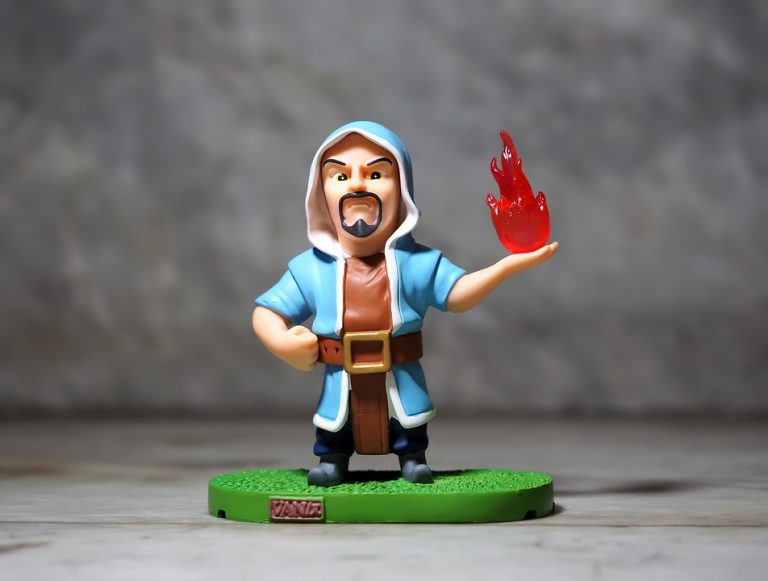You’ve probably heard the phrase “game on” a million times, but have you ever thought about what it really takes to level up your game development skills? Whether you’re an aspiring game designer, a seasoned developer, or someone who just loves video games, there’s always room for improvement. The gaming industry is evolving faster than a speedrun through Super Mario, and keeping up with the latest trends and technologies can seem daunting. But fear not! Here are seven actionable ways to supercharge your game development skills today.
Contents
1. Dive Into Online Courses
If you’re looking to sharpen your skills, online courses are a fantastic place to start. Platforms like Udemy, Coursera, and edX offer a plethora of courses tailored specifically for game development.
Pros:
- Structured Learning: Courses often provide a roadmap from beginner to advanced levels.
- Flexibility: Learn at your own pace, on your own schedule.
Cons:
- Cost: Some courses can be pricey, though many offer free trials or financial aid options.
- Quality Varies: Not all courses are created equal, so read reviews before committing.
For example, I took a game design course on Coursera that transformed my understanding of user experience. The instructor used real-world examples, making complex concepts digestible.
Tip: Look for courses that include hands-on projects, as building something tangible can reinforce what you learn.
2. Join Game Development Communities
Networking isn’t just for business; it’s crucial for game developers, too. Online forums like Reddit’s r/gamedev or Discord servers dedicated to game development can be gold mines for knowledge and support.
Benefits:
- Feedback: Get constructive criticism on your projects.
- Collaboration: Find potential collaborators for your next big idea.
I remember posting a prototype of my game on a forum and receiving invaluable feedback that led to significant improvements. The community spirit is strong, and you’d be surprised how willing people are to help each other out.
Pro Tip: Regularly engage in conversations and don’t hesitate to ask questions. You’ll be amazed at how many seasoned developers are eager to share their insights.
3. Work on Personal Projects
Nothing beats hands-on experience. Start a personal project—whether it’s a simple mobile game or a more complex PC game.
The Benefits:
- Skill Application: Apply what you’ve learned in a real-world context.
- Portfolio Building: Showcase your work to potential employers or collaborators.
When I first started, I decided to create a simple 2D platformer. It was a messy process, but I learned more from debugging and problem-solving than I ever did from tutorials.
Caveat:
Be realistic about your goals. It’s easy to get overwhelmed, so start small and gradually increase the complexity of your projects.
4. Explore Game Engines
Familiarity with different game engines can set you apart from the competition. Unity and Unreal Engine are two of the most popular choices, but there are many others like Godot and GameMaker Studio.
Why It Matters:
- Versatility: Different engines have unique strengths. Knowing multiple engines can make you adaptable.
- Industry Standards: Many companies use Unity or Unreal, so experience with these can be a significant selling point.
I spent a summer learning Unity, and it was a game-changer (pun intended). The engine’s vast library and community resources made it easier to experiment and innovate.
Pro Tip:
Check out the official documentation and community forums for tutorials and troubleshooting. You’ll often find tips from developers who have faced similar challenges.
5. Read Industry Blogs and Books
Keeping up with industry trends is essential for any game developer. Blogs like Gamasutra, Game Developer, and even Backlinko offer valuable insights into the latest developments in game design and technology.
Benefits:
- Stay Updated: Learn about new tools, techniques, and industry standards.
- Inspiration: Reading success stories can spark your creativity.
One book that profoundly impacted my approach was The Art of Game Design by Jesse Schell. It’s filled with practical insights and thought-provoking questions that challenge your perspective.
Caveat:
Be mindful of the source. Make sure you’re reading from reputable publishers and authors to avoid misinformation.
6. Collaborate with Others
Whether it’s teaming up for a game jam or working on a larger project, collaboration can expose you to new ideas and skills.
The Benefits:
- Diverse Perspectives: Working with others can lead to innovative solutions.
- Skill Sharing: Learn from each other’s strengths.
I once participated in a game jam where I teamed up with artists and sound designers. The experience taught me the importance of collaboration and communication in game development.
Pro Tip:
Look for local meetups or online events where you can connect with other developers. Platforms like Meetup.com often list events specifically for game developers.
7. Analyze Existing Games
Take the time to play games critically. Rather than just enjoying the experience, break down what makes certain games successful or not.
Why It’s Important:
- Understanding Mechanics: Analyze gameplay mechanics, user interface, and story structure.
- Identifying Trends: Recognize what’s working in the industry and what’s not.
I’ve spent hours dissecting games like The Legend of Zelda: Breath of the Wild and Celeste. Understanding why they resonate with players has helped me incorporate similar elements into my own projects.
Caveat:
Don’t just copy what you see. Use your analysis as a springboard for your creativity, not a crutch.
FAQs
What is the best game engine for beginners?
Unity is often recommended due to its user-friendly interface and extensive resources for learning.
How can I find collaborators for my game projects?
Online communities, local meetups, and platforms like itch.io and GitHub are great places to connect with other developers.
How important is it to have a portfolio?
A portfolio showcases your skills and projects, making it essential for job applications and freelance opportunities.
What’s the best way to get feedback on my game?
Engage with online communities or share your game with friends and family for honest opinions.
Conclusion
Boosting your game development skills doesn’t have to feel like an insurmountable challenge. By diving into online courses, engaging with communities, and actively working on projects, you can make significant strides in your abilities. Remember, the key is to stay curious, keep learning, and don’t shy away from collaboration.
As the gaming industry continues to evolve, so should you. Embrace the journey, and who knows? One day, you might just create the next big hit.








